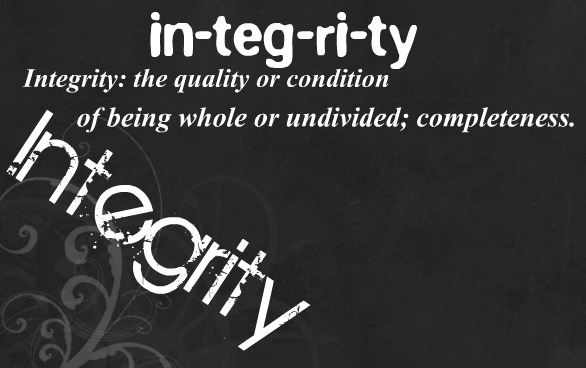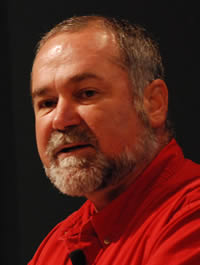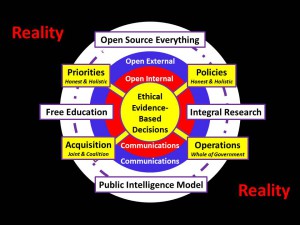
Updated 1 November 2012 to add core graphic: Graphic: Ethical Evidence-Based Decisions. Updated 13 April 2012 to add new book: THE OPEN SOURCE EVERYTHING MANIFESTO: Transparency, Truth & Trust. Updated 8 March 2012 to add underlying philosophical reference: 2012-03-08 GOD MAN INTERVAL Reformatted & Linked. Updated 6 December 2011 to add this seminal reference: Journal: Politics & Intelligence–Partners Only When Integrity is Central to Both. Updated 3 October 2011 to add Steven Johnson and Werner Ekard contributions on integrity. Updated 1 October 2011 to add excuses from colleagues, and a riposte.

Click Here to See Personal Page
ON INTEGRITY
1. Integrity is not just about honor–it is about wholeness of view, completeness of effort, and accuracy or reliability of all of the elements of the whole.
2. Industrial-Era Systems do not adapt because they lack integrity and continue to pay for doing the wrong things righter–the Pentagon is a classic example of such as system.
3. In the 21st Century, intelligence, design, and integrity are the triad that matters most. The truth, the whole truth, and nothing but the truth is the non-negotiable starting position for getting it right, and this is crucially important with respect to the sustainability of the Earth as a home for humanity.

4. Integrity at the top requires clarity, diversity, and BALANCE–it makes no sense for a Secretary of Defense to continue to screw over the 4% that take 80% of the casualties, spending 80% of the Pentagon budget on the 20% that do not take casualties (occupants of really big expensive things that do not actually go into harm's way).
5. Integrity can be compounded or discounted. It is compounded when public understanding demands political accountability and flag officers ultimately understand that they have sworn an oath to uphold the Constitution, not support the chain of command. It is discounted when flag officers are careerists, ascribe to rankism, and generally betray the public interest in favor of personal advancement.
6. Integrity is ultimately a natural attribute of large groups, and emerges from self-organizing over time. The Declaration of Independence from the United Kingdom is one example; the break-up of the Balkans another; the pending secession of Hawaii and Vermont from the United STATES of America a third. Legitimate grievances give the aggrieved the moral high ground–this is a power no government can repress.
7. Universal access to connectivity and content is a means of accelerating both public access to the truth, and the power of the public to off-set “rule by secrecy,” which inherently lacks integrity across the board.
EXCUSES most commonly heard:
1) I work for the government, we serve the public, I consider myself part of the government, not part of the public, and indeed, choose not to vote or otherwise be active as a citizen.
2) The public elects the politicians, they appoint the leadership, serving the chain of command is how one serves the public.
RIPOSTE:
1) Citizenship trumps occupational role. Every employee is supposed to be a citizen first, a public servant second. They swear an oath to support and defend the Constitution, that includes a responsibility to protect the public from predatory government actions – the recent assassination of a US citizen without due process is a reprehensible example of what happens with uniformed officers and civil servants become morally disengaged.
2) Information asymmetries between the public and the government are such that a democracy demands whistle-blowers and open government. Rule by secrecy is a form of tyranny, a means of avoiding accountability, and ultimately a clear and present danger to the Constitution, the Republic, and the public interest. Because of their Oath, it can be said that government employees have a special responsibility to detect and confront fraud, waste, and abuse – and certainly to disobey and declare illegal orders and plans or programs inconsistent with the Constitution, such as wars not authorized by Congress, or assassinations not based on the rule of law.
In brief, all of our government employees have been “coping out” and failing to live up to their fullest potential as citizens and human beings. To be silent and complacent is to be a slave, not a citizen. Any employee of the government that fails to think about the Constitution and their role in defending the Constitution at every level on every day across every issue area, is failing to honor their Oath of office.
See Also:
2012 Manifesto for Truth: Expanding the Open Source Revolution (Evolver Editions, July 2012)
2010: Human Intelligence (HUMINT) Trilogy Updated
2010 INTELLIGENCE FOR EARTH: Clarity, Diversity, Integrity, & Sustainability
2009 Perhaps We Should Have Shouted: A Twenty-Year Restrospective
2008 ELECTION 2008: Lipstick on the Pig
2008 COLLECTIVE INTELLIGENCE: Creating a Prosperous World at Peace
2006 THE SMART NATION ACT: Public Intelligence in the Public Interest
About: EarthGame and World Brain
Connecting the Dots: ALL of Them
DefDog: The Importance of Selection Bias in Statistics
Dr. Russell Ackoff on IC and DoD + Design RECAP
Election 2008 Chapter: The Substance of Governance
Graphic: Medard Gabel’s Cost of Peace versus War
Graphic: Tom Atlee on Whole-System Intelligence
Open Source Agency: Executive Access Point
Paul Fernhout: Comments on Integrity at Scale
Reference: Cyber-Intelligence–Restore the Republic Of, By, and For…
Reference: Earth Intelligence Network Concept for Execution
Reference: Integrity–Without it Nothing Works
Reference: Integrity–Without it Nothing Works II
Reference: Russell Ackoff on Doing Right Things Righter
Reference: Strategic Analytic Model for Creating a Prosperous World at Peace
Review: Designing A World That Works For All
Review: Ideas and Integrities–A Spontaneous Autobiographical Disclosure
Review: Reflexive Practice–Professional Thinking for a Turbulent World
Review: Rethink–A Business Manifesto for Cutting Costs and Boosting Innovation
Review: The Collapse of Complex Societies
Review: The Design of Business–Why Design Thinking is the Next Competitive Advantage
Review: The Leader’s Guide to Radical Management–Reinventing the Workplace for the 21st Century
Robert Garigue: Feedback for Dynamic System Change
Search: design thinking and public administratio
Search: holistic cybernetic integral
Seven Promises to America–Who Will Do This?
Steven Howard Johnson: Integrity as a Profit Multiplier
Stuart Umpleby: Papers on Reflexivity, Soros Reviews
USA: Thirteen Big Lies — Needed Counter-Narrative
Who’s Who in Collective Intelligence: John N. Warfield
Who’s Who in Collective Intelligence: Robert David STEELE Vivas
Who’s Who in Earth Intelligence: Medard Gabel
Who’s Who in Public Intelligence: Steven Howard Johnson







